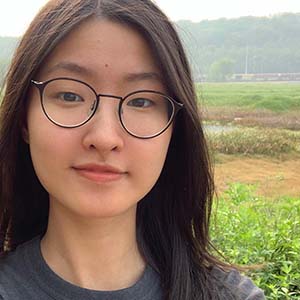Jarita Chen

she/her/hers
Class of 2022
Political Science and Environmental Studies
Lower Phalen Creek Project
This summer I partnered with the Lower Phalen Creek Project to combine my interest in environmental justice and my intention to be a respectful guest on Dakota land. LPCP is a Native-led environmental organization based in East Side St Paul, which advocates for the environment by centering Indigenous knowledge.
At LPCP, my research on environmental justice and land-use issues focused on Čhokáŋ Taŋka (the “big middle” in Dakota). Now known as Pig’s Eye Park (profile pic background) and St Paul’s largest park, it is largely inaccessible and neglected. To learn about the numerous issues there, such as historical and ongoing pollution, land use controversies, and the intertwined governance questions, I visited the park almost weekly through the help of community advocates and analyzed government documents and news reporting. In support of the ongoing advocacy for for Čhokáŋ Taŋka’s care, I created a map of the region, a concept map, and a comprehensive report to clarify the complex relationships and details of different issues. Witnessing the beauty and neglect of the park—including a recent diesel fuel spill—reinforced the importance of spending time ‘out there,’ seeing with my own eyes, and taking action alongside community advocates.
This was also true for when I inquired about environmental justice advocacy in the North Side as part of LPCP’s effort to develop EJ policies and build connections. As I helped with CMEJ’s community garden, I learned about this disproportionately pollution-burdened part of Minneapolis and the experiences and activism of its residents. I also found both differences and connections with issues in the East Side.
I am indebted to LPCP, especially for the opportunity to visit various parts of Minnesota and the Indigenous-centric perspectives I gained. I’m grateful for the knowledge that everyone I encountered this summer bestowed upon me, especially for guiding me through their communities and work. Two months felt like a blip in the context of years, if not decades of ongoing work, but I also took away so much within this short period. The end of this summer program doesn’t mean the end of my work. I look forward to maintaining these relationships I built and working with LPCP again next spring.